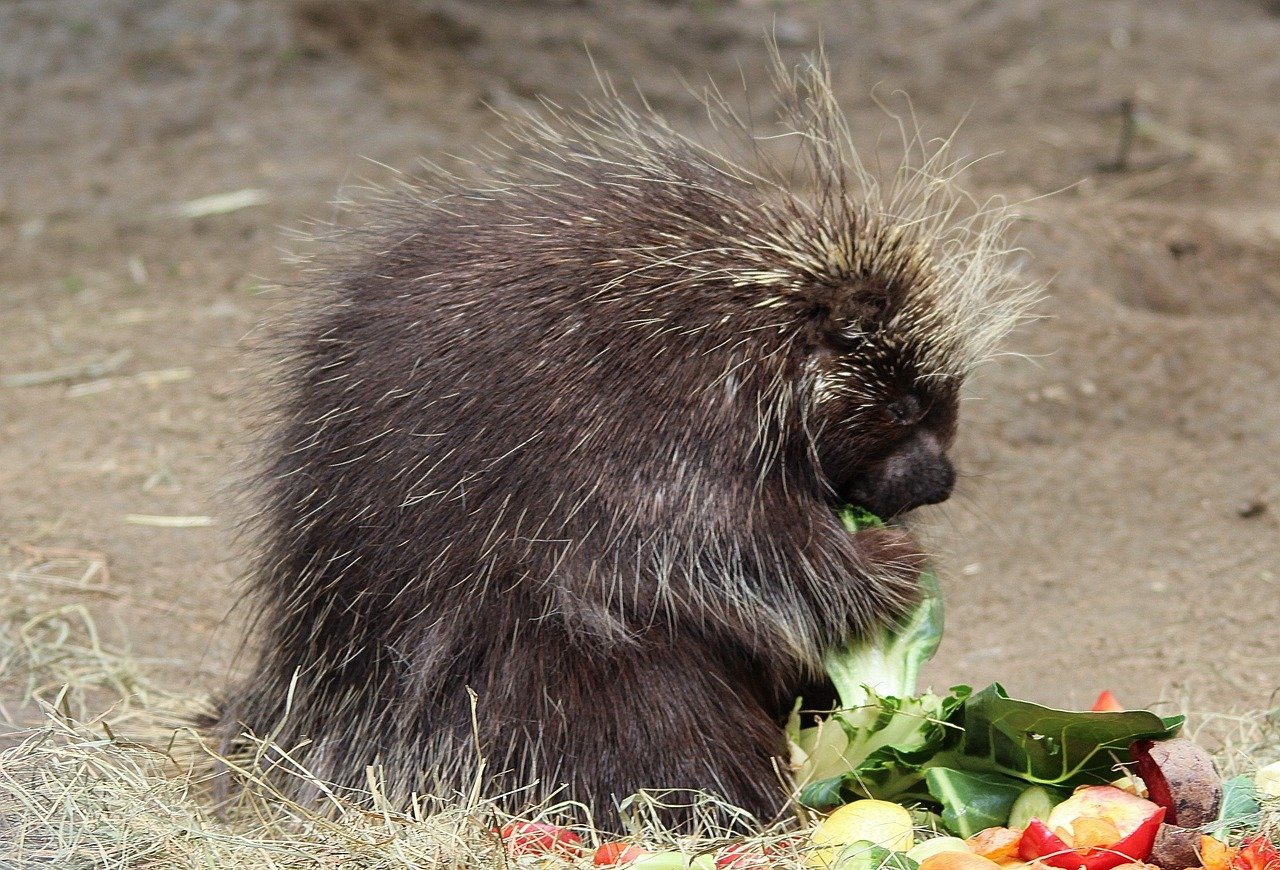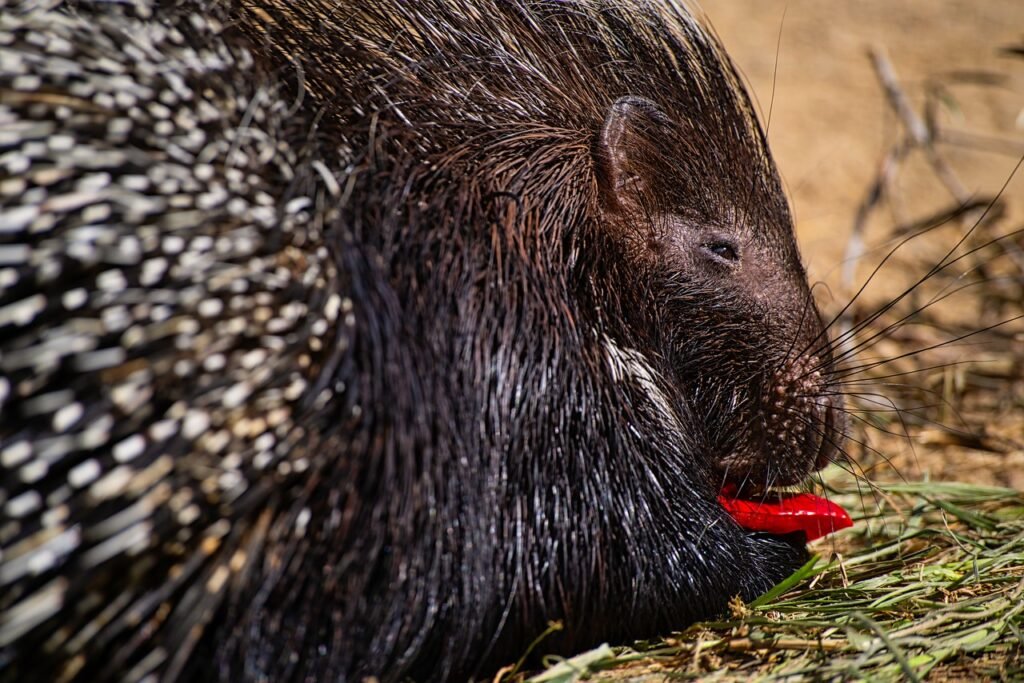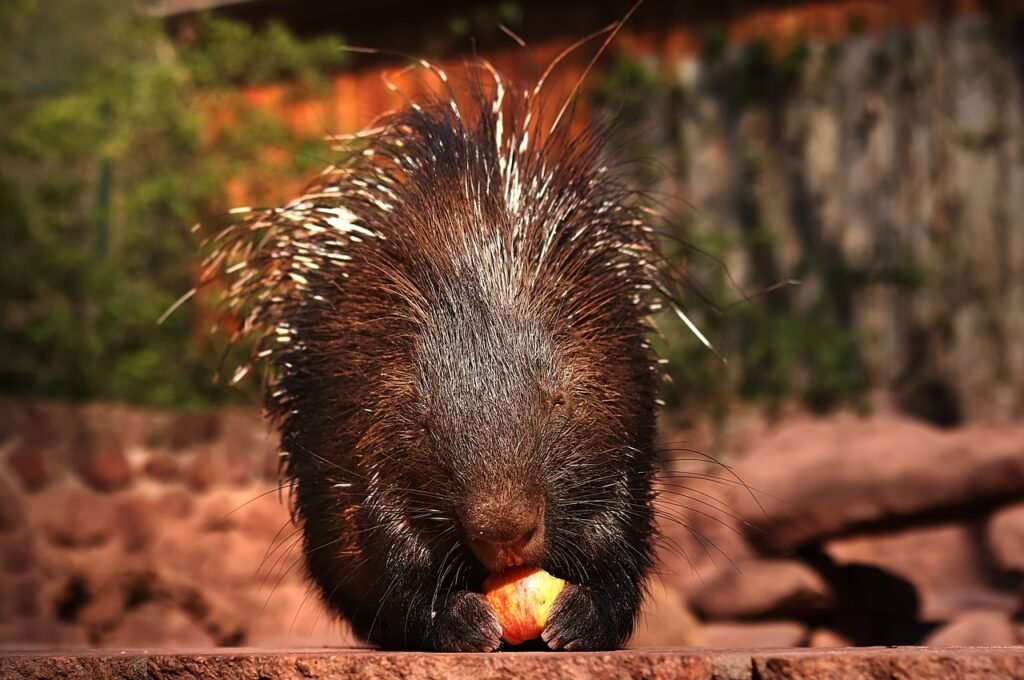Providing a balanced and nutrient-rich diet is essential for the well-being of your porcupine companion. Crafting a diet that meets their specific nutritional needs ensures not only physical health but also contributes to a happy and vibrant quilled friend. In this guide, we explore the principles of a balanced porcupine diet and offer insights into creating meals that are both delicious and nutritionally sound.
Understanding Porcupine Nutritional Needs:
1. High-Fiber Foundations:
- Porcupines are herbivores with a primary diet consisting of plant material. Incorporate high-fiber foods like hay, grass, and leafy greens to mimic their natural diet and support digestive health.
2. Essential Nutrients:
- Ensure your porcupine receives a variety of nutrients, including vitamins and minerals. A diverse diet helps prevent nutritional deficiencies and supports overall health.
3. Moderate Protein Intake:
- While porcupines need protein for muscle health, excessive protein intake can lead to health issues. Provide a balanced amount of protein through sources like nuts, seeds, and legumes.
Crafting a Nutrient-Rich Porcupine Menu:
1. Leafy Green Delights:
- Include leafy greens. Some to consider are kale, spinach, and collard greens in your porcupine’s diet. By doing this your porcupine will consume essential vitamins and minerals. The added bonus is that flavor and texture will be added to meals.
2. Colorful Vegetable Mix:
- Introduce a rainbow of vegetables, including carrots, bell peppers, and squash. The vibrant colors indicate a range of nutrients beneficial for your porcupine’s overall well-being.
3. Nutty Indulgences:
- Nuts and seeds, such as almonds, walnuts, and pumpkin seeds, offer healthy fats and protein. These can be provided in moderation as tasty and nutritious treats.
4. Fruitful Treats:
- Offer fruits like apples, berries, and melons as occasional treats. Fruits add natural sweetness and provide essential vitamins, but they should be given in moderation due to their sugar content.
5. Hay for Dental Health:
- Timothy hay serves a dual purpose by providing necessary fiber for digestion and promoting dental health. Ensure a constant supply of fresh hay for your porcupine to chew on.
6. Herb Garden Bliss:
- Create an herb garden with options like parsley, cilantro, and mint. Not only do herbs add flavor, but they also contribute additional nutrients and enrichment to your porcupine’s diet.
Meal Planning and Feeding Guidelines:
1. Portion Control:
- Pay attention to portion sizes to prevent overfeeding. Porcupines are prone to obesity, so monitor their weight and adjust portions accordingly.
2. Feeding Frequency:
- Porcupines benefit from multiple small meals throughout the day. This aligns with their natural grazing behavior and helps maintain a steady energy level.
3. Hydration Matters:
- Ensure a fresh and clean water supply at all times. Hydration is vital for digestion and overall health, so make water readily available for your porcupine.
4. Monitor Eating Habits:
- Regularly observe your porcupine’s eating habits. Changes in appetite or preferences may indicate underlying health issues, and prompt attention can prevent complications.
5. Consult with a Veterinarian:
- Before making significant changes to your porcupine’s diet, consult with a veterinarian specializing in exotic animals. They can provide personalized advice based on your porcupine’s specific needs.
Conclusion: Nourishing a Happy and Healthy Porcupine
Crafting a nutrient-rich diet for your porcupine is a rewarding endeavor that contributes to their overall well-being and happiness. By understanding their nutritional needs and providing a diverse and balanced menu, you can ensure that your quilled companion enjoys a life filled with tasty and nutritious bites. Remember to monitor their eating habits, consult with a veterinarian, and enjoy the journey of nourishing a happy and healthy porcupine.



